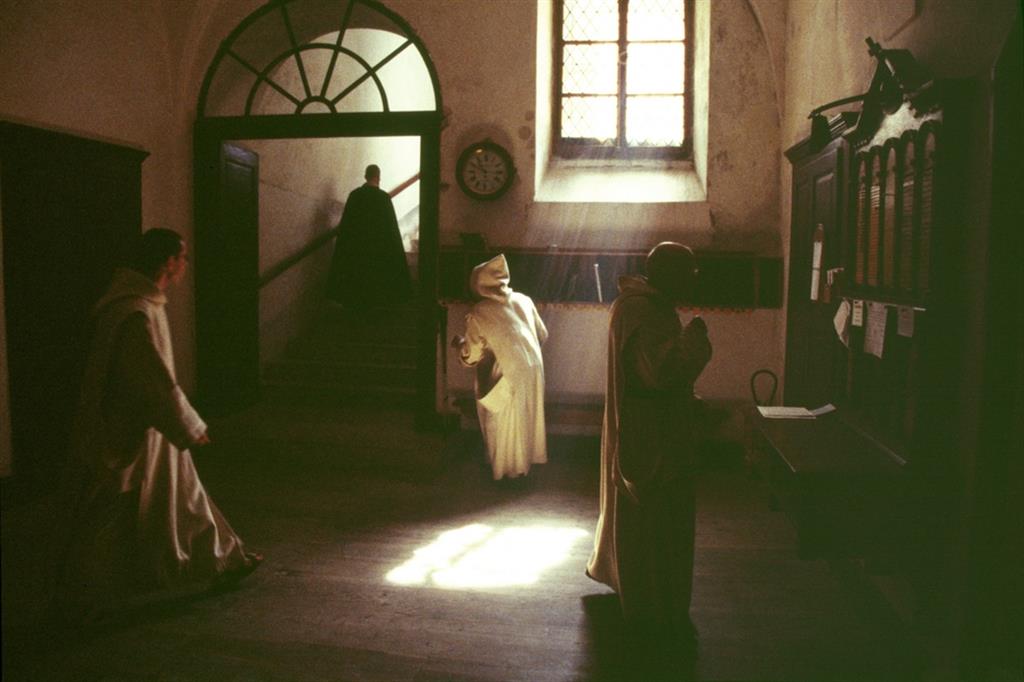
A still from “The Great Silence”, documentary film directed by Philip Gröning in 2005 – archive
How many times in despair have we felt like a football team at the mercy of the opponent, powerless and offside compared to this time. And maybe looking in the mirror we saw the outline of Munch’s Scream shouting our need to know what is the meaning of this life and the reality that surrounds us. How many times have we “screamed” the desire for authentic relationships and friendships in an era in which virtual reality often only masks our loneliness. In short, there are many reasonable reasons to think of living in the worst of all possible worlds: not only wars and pandemics, but also the ideologies that are undermining the family or the new technological addictions that undermine the parent-child relationship. In reality, however, each era has its crosses, the comparisons are misleading. What matters is the heart of man which has always been the same and determines our path. To become aware of this, it is refreshing to dive into the river of pure and crystalline water that flows from a precious volume: At the school of silence. An itinerary of contemplation. Anthology of Carthusian authors (Rubbettino, pages 534, 29.00 euros) with the preface by Armando Matteo. The very clear thoughts of all the great men of one of the most rigorous and fascinating monastic orders of the Catholic Church have been collected. A monumental work that quenches the thirst of contemporary man even with texts written even a thousand years ago. The Carthusian order was founded by Saint Bruno, a native of Cologne in Germany in about 1030, who died in the Calabrian hermitage of Serra San Bruno in 1101. The first monastery he founded was the Grande Chartreuse, near Grenoble, France, which explains also the name of the order. At the base there is the awareness that all the greatest secrets were also revealed to biblical characters not among the crowds but in solitude because it is here that the heart acquires “that pure and luminous eye” that is able to see the Creator of the universe. . And Bruno’s gaze sees God above all as goodness: “Can there be anything better than God? Indeed what other good can there be apart from God alone? ». They say that the saint always had a happy face, but this is a privilege reserved for the “brave” who embrace this life. As he himself wrote: “Only those who have experienced it know what divine utility and joy the solitude and silence of the hermitage give to those who love them.” Inner peace is an achievement that requires training, a continuous struggle with oneself by finding the strength in the One who wanted us on the pitch. “And God – writes Saint Bruno – gives his athletes, for the fatigue of the fight, the desired reward: the peace that the world does not know and the joy of the Holy Spirit”. The literary production of the Carthusians, the volume warns, is rather scarce compared to the other monastic orders. There is a well-founded reason also reaffirmed in the Statutes and it is the fear of neglecting the first and most important task for a Carthusian: to deal only with God in solitude and silence. One more reason to appreciate a collection that presents many texts translated into Italian for the first time by even little-known authors. At the end we have a real manual in our hands to experience a speaking silence and the power of prayer. Because “in prayer, if God leaves us in the night, it is illuminated with clarity”. A lifeline, since immersed as we are in this frenetic society we struggle at the bottom in search of the one thing perhaps not just a click away: peace of heart. This is why the ancient motto of the Carthusian order is always relevant: Stat Crux dum volvitur orbis (“Stable, then, is the cross of Christ, while the world moves”). Certainly it is not easy to deal with the suffering, the innocent pain of the little ones or those we love. We would like to do without our “crosses”, even if Golgotha comes to our aid. And when we are no longer able to look up, the Carthusians teach: “God is absent to be more desired”. It is the trust of those who already feel safe as a child in the arms of that Father who will one day make us happy forever. Faith as a relationship, to avoid the biggest pitfall, that of thinking of having to play it alone. The monk Augustine Guillerand writes: «Let us no longer see ourselves alone carrying the weight of our being and of life. There is no more dangerous mistake than this. God offers himself to us to fill the emptiness of our soul and transform all his desolations into joy ».
Spirituality. The silence that speaks: the lesson of the Carthusians

